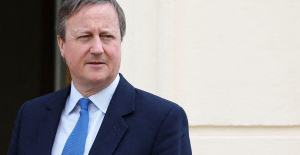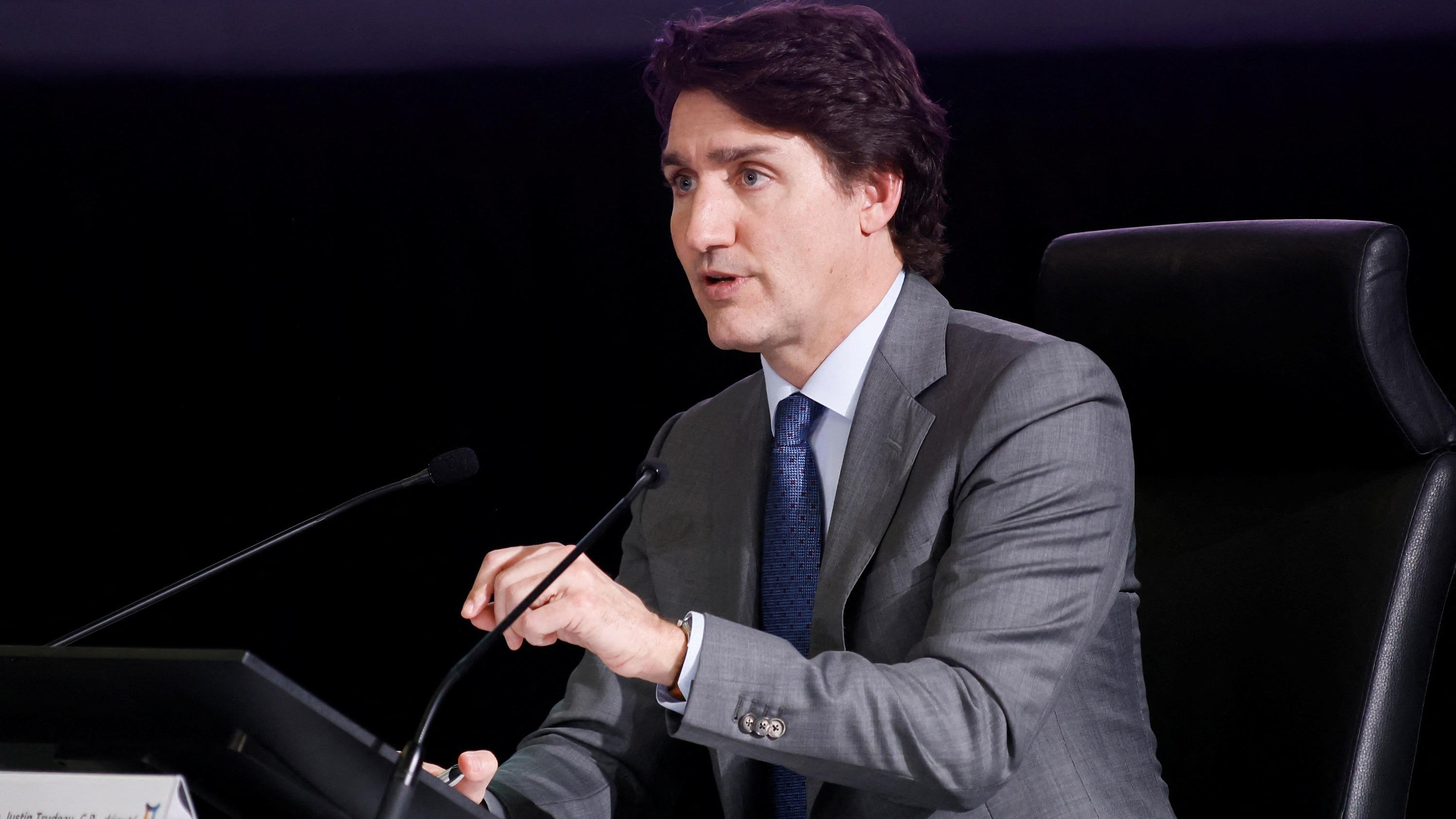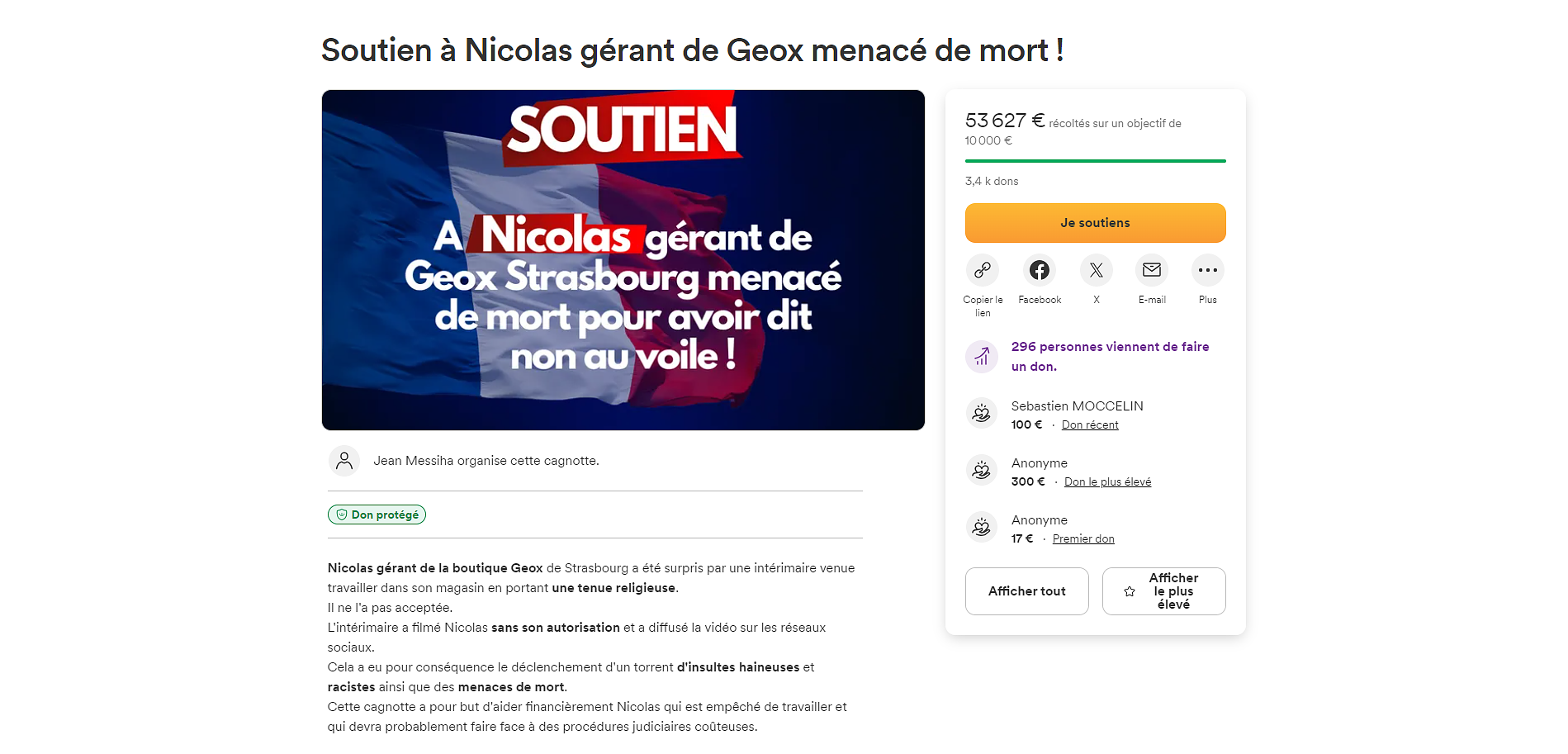For Defense Minister Christine Lambrecht (SPD), the new year begins with a bang – down. When it comes to satisfaction with politicians, she literally plummets. This is the result of the Germany trend, which Infratest Dimap collected on behalf of ARD “Tagesthemen” and WELT.
Only 13 percent of those surveyed are satisfied with the politician's performance, down eight points compared to the previous month.
On the other hand, 70 percent were less or not at all satisfied with Lambrecht. This is the lowest level of support for a defense minister that has ever been measured in the Deutschlandtrend. The survey was conducted from January 2nd to 4th, so Lambrecht's failed New Year's Eve video carried some weight.
Foreign Minister Annalena Baerbock and Vice-Chancellor Robert Habeck are once again at the forefront of popularity. The two Greens can improve slightly to 49 and 44 percent respectively. Chancellor Olaf Scholz (SPD) increases by four points to 40 percent. Finance Minister Christian Lindner (FDP) ends up with 32 percent approval ahead of opposition leader Friedrich Merz (CDU), who loses slightly in politician satisfaction with 29 percent.
Admittedly, support for the federal government has improved slightly: 32 percent are “satisfied”, which is an increase of four points. But 64 percent are “less satisfied” or “not at all satisfied” with the traffic light.
Overall, a picture of satisfaction with federal politicians was confirmed in January that could not be overlooked last year: not a single politician still achieved approval ratings above the 50 percent mark.
Rejection already predominates with Economics Minister Habeck (47 to 44), with the chancellor the discrepancy is even greater at 57 to 40. So war and crisis break through. For comparison: ten years ago, when the Union and the FDP still ruled at federal level, then Chancellor Angela Merkel (CDU) received 65 percent approval, and 34 percent were dissatisfied with her. Even an opposition politician like the Green Party, Jürgen Trittin, achieved 45 percent approval in January 2013. Today that is a top value.
The reasons for these shifts are obvious; they have to do with the citizens' list of concerns. At 24 percent, respondents still consider the war in Ukraine to be the biggest problem, although there has been a decrease of 13 points compared to June 2022.
Energy policy and the energy transition move up to second place as a concern with 19 percent, an increase of eight points in the past six months. Fear of inflation was mentioned by 14 percent, a significant drop of nine points compared to June 2022. 13 percent recognize problems in connection with immigration and flight – an increase of nine points.
A clear majority advocates supporting Ukraine with German weapons; 41 percent consider it appropriate, 25 percent do not go far enough. There are still relative majorities when it comes to supporting the sanctions: 35 percent do not think they go far enough, just as many think they are appropriate.
However, there are still clear differences between East and West on the issues surrounding the war in Ukraine. In eastern Germany, the majority of those think that the military support for Kyiv and the sanctions against Moscow are going too far.
Looking into the new year is marked by skepticism. Just under a third of Germans expect the war to end in the course of the year, and 58 percent do not believe it. Nevertheless, 62 percent of Germans expect that 2023 will be a good year for them personally, while 23 percent are pessimistic about the future.
Compared to December, there is little movement on the Sunday question. The Union is clearly in the lead with 29 percent, the Greens are just ahead of the SPD (18 percent) in January with 19 percent. The FDP can improve by one point to six percent. Of course, this does not result in a majority for the traffic light. The AfD remains stable at 15 points, the left at five.
The topic that has had a firm grip on the Federal Republic and the rest of the world since spring 2020 has all but disappeared from the problem agenda of Germans: Corona. Only twelve percent still consider the protective measures to be insufficient, a decrease of ten points since August 2022. 57 percent of the population consider them appropriate. And 28 percent now go too far, an increase of six points.
For the representative Germany trend, Infratest Dimap surveyed 1,314 eligible voters in 859 telephone and 455 online interviews from January 2nd to 4th. The error tolerance is between two and three percentage points.
"Kick-off Politics" is WELT's daily news podcast. The most important topic analyzed by WELT editors and the dates of the day. Subscribe to the podcast on Spotify, Apple Podcasts, Amazon Music or directly via RSS feed.

 Rishi Sunak wants a tobacco-free UK
Rishi Sunak wants a tobacco-free UK In Africa, the number of millionaires will boom over the next ten years
In Africa, the number of millionaires will boom over the next ten years Iran's attack on Israel: these false, misleading images spreading on social networks
Iran's attack on Israel: these false, misleading images spreading on social networks Iran-Israel: David Cameron wants the G7 to impose “coordinated sanctions” on Iran
Iran-Israel: David Cameron wants the G7 to impose “coordinated sanctions” on Iran New generation mosquito nets prove much more effective against malaria
New generation mosquito nets prove much more effective against malaria Covid-19: everything you need to know about the new vaccination campaign which is starting
Covid-19: everything you need to know about the new vaccination campaign which is starting The best laptops of the moment boast artificial intelligence
The best laptops of the moment boast artificial intelligence Amazon invests 700 million in robotizing its warehouses in Europe
Amazon invests 700 million in robotizing its warehouses in Europe Solar panels: French manufacturer Systovi announces the cessation of its activities due to “Chinese dumping”
Solar panels: French manufacturer Systovi announces the cessation of its activities due to “Chinese dumping” Tesla: canceled in court, Musk's huge compensation plan will again be submitted to shareholders
Tesla: canceled in court, Musk's huge compensation plan will again be submitted to shareholders Two, three or a hundred euros: who are the most generous customers with tips?
Two, three or a hundred euros: who are the most generous customers with tips? Boeing safety examined in US Senate, after whistleblower's revelations
Boeing safety examined in US Senate, after whistleblower's revelations Immersion among the companions of the Liberation
Immersion among the companions of the Liberation Provence-Alpes-Côte d’Azur releases several hundred thousand euros for the promotion of the work of Marcel Pagnol
Provence-Alpes-Côte d’Azur releases several hundred thousand euros for the promotion of the work of Marcel Pagnol A palm of honor distinguishes Studios Ghibli for all of their work
A palm of honor distinguishes Studios Ghibli for all of their work Gaby, a new play by Pagnol adapted into a comic strip
Gaby, a new play by Pagnol adapted into a comic strip Skoda Kodiaq 2024: a 'beast' plug-in hybrid SUV
Skoda Kodiaq 2024: a 'beast' plug-in hybrid SUV Tesla launches a new Model Y with 600 km of autonomy at a "more accessible price"
Tesla launches a new Model Y with 600 km of autonomy at a "more accessible price" The 10 best-selling cars in March 2024 in Spain: sales fall due to Easter
The 10 best-selling cars in March 2024 in Spain: sales fall due to Easter A private jet company buys more than 100 flying cars
A private jet company buys more than 100 flying cars This is how housing prices have changed in Spain in the last decade
This is how housing prices have changed in Spain in the last decade The home mortgage firm drops 10% in January and interest soars to 3.46%
The home mortgage firm drops 10% in January and interest soars to 3.46% The jewel of the Rocío de Nagüeles urbanization: a dream villa in Marbella
The jewel of the Rocío de Nagüeles urbanization: a dream villa in Marbella Rental prices grow by 7.3% in February: where does it go up and where does it go down?
Rental prices grow by 7.3% in February: where does it go up and where does it go down? Europeans: the schedule of debates to follow between now and June 9
Europeans: the schedule of debates to follow between now and June 9 Europeans: “In France, there is a left and there is a right,” assures Bellamy
Europeans: “In France, there is a left and there is a right,” assures Bellamy During the night of the economy, the right points out the budgetary flaws of the macronie
During the night of the economy, the right points out the budgetary flaws of the macronie Europeans: Glucksmann denounces “Emmanuel Macron’s failure” in the face of Bardella’s success
Europeans: Glucksmann denounces “Emmanuel Macron’s failure” in the face of Bardella’s success These French cities that will boycott the World Cup in Qatar
These French cities that will boycott the World Cup in Qatar Union Bordeaux Bègles-Clermont: at what time and on which channel to follow the Top 14 clash?
Union Bordeaux Bègles-Clermont: at what time and on which channel to follow the Top 14 clash? Football: Ada Hegerberg extends at OL until 2027
Football: Ada Hegerberg extends at OL until 2027 Basketball: suspended for life from NBA for fixing his match
Basketball: suspended for life from NBA for fixing his match Paris 2024 Olympic Games: boxer Estelle Mossely wants to parade on the Seine as a flag bearer
Paris 2024 Olympic Games: boxer Estelle Mossely wants to parade on the Seine as a flag bearer


















